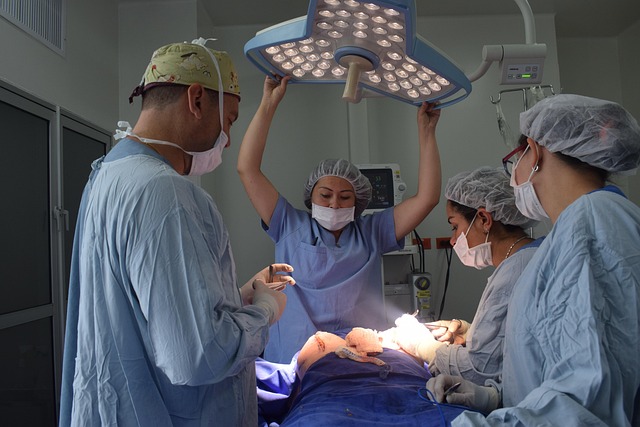Understanding Tummy Tuck Surgery: A Comprehensive Guide
A tummy tuck, also known as abdominoplasty, is a popular cosmetic surgical procedure designed to remove excess fat and skin from the abdominal area, resulting in a flatter, more toned midsection. This surgery is particularly beneficial for individuals who have struggled with weight loss or pregnancy-related changes to their body shape. While a tummy tuck can significantly improve one's appearance and self-confidence, it's essential to understand the procedure, its benefits, risks, and recovery process before deciding if it's right for you.

Who is an Ideal Candidate for Tummy Tuck Surgery?
Ideal candidates for tummy tuck surgery are individuals who are in good overall health but struggle with excess abdominal skin and fat that doesn’t respond to diet and exercise. This often includes:
-
People who have lost significant weight and are left with loose skin
-
Women who have gone through pregnancy and childbirth
-
Individuals with weakened abdominal muscles due to aging or genetics
It’s important to note that a tummy tuck is not a weight loss solution. Patients should be at or near their ideal weight before considering this procedure.
What are the Benefits and Risks of Tummy Tuck Surgery?
Tummy tuck surgery offers several benefits, including:
-
A flatter, more toned abdomen
-
Improved body contour
-
Removal of stretch marks below the navel
-
Tightened abdominal muscles
-
Increased self-confidence
However, like any surgical procedure, tummy tucks come with potential risks:
-
Infection
-
Bleeding
-
Scarring
-
Numbness or changes in skin sensation
-
Poor wound healing
-
Blood clots
-
Anesthesia-related complications
How to Prepare for Tummy Tuck Surgery?
Proper preparation is crucial for a successful tummy tuck procedure and recovery. Your plastic surgeon will provide specific instructions, but general preparation steps include:
-
Stopping smoking at least six weeks before surgery
-
Avoiding certain medications and supplements that can increase bleeding risk
-
Arranging for someone to drive you home and assist you during the initial recovery period
-
Preparing your home for a comfortable recovery
-
Following any dietary restrictions recommended by your surgeon
What is the Recovery Process After a Tummy Tuck?
Recovery from a tummy tuck typically takes several weeks. Here’s what you can expect:
-
Initial recovery (1-2 weeks): You’ll need to rest and avoid strenuous activities. Pain, swelling, and bruising are common during this period.
-
Gradual return to normal activities (2-6 weeks): Light activities can be resumed, but heavy lifting and intense exercise should be avoided.
-
Full recovery (6-8 weeks): Most patients can return to all normal activities, including exercise, by this time.
Your surgeon will provide specific post-operative instructions, including how to care for your incision, when to follow up, and when you can resume normal activities.
How Much Does a Tummy Tuck Cost and What Factors Affect Pricing?
The cost of a tummy tuck can vary significantly based on several factors:
-
Geographic location
-
Surgeon’s experience and expertise
-
Facility fees
-
Anesthesia fees
-
Post-surgery garments
-
Prescription medications
On average, tummy tuck surgery in the United States can range from $6,000 to $12,000. However, prices can be higher in major metropolitan areas or for more complex procedures.
| Provider Type | Average Cost Range | Factors Affecting Cost |
|---|---|---|
| Private Practice Plastic Surgeon | $6,000 - $12,000 | Experience, location, procedure complexity |
| Hospital-Based Plastic Surgeon | $8,000 - $15,000 | Hospital fees, location, surgeon’s credentials |
| Medical Tourism Package | $4,000 - $8,000 | Country, travel costs, package inclusions |
Prices, rates, or cost estimates mentioned in this article are based on the latest available information but may change over time. Independent research is advised before making financial decisions.
It’s important to note that most health insurance plans do not cover tummy tuck surgery, as it’s considered a cosmetic procedure. However, some surgeons offer financing options to help make the procedure more affordable.
In conclusion, a tummy tuck can be an effective way to achieve a flatter, more toned abdomen when diet and exercise alone aren’t sufficient. While the procedure offers significant benefits, it’s crucial to understand the risks, recovery process, and financial implications before deciding to undergo surgery. Consulting with a board-certified plastic surgeon is the best way to determine if a tummy tuck is right for you and to develop a personalized treatment plan.
This article is for informational purposes only and should not be considered medical advice. Please consult a qualified healthcare professional for personalized guidance and treatment.






